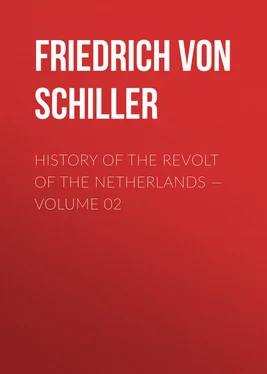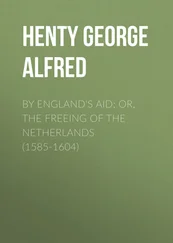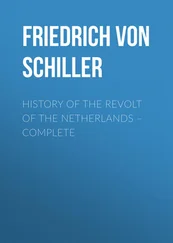Friedrich Schiller - History of the Revolt of the Netherlands — Volume 02
Здесь есть возможность читать онлайн «Friedrich Schiller - History of the Revolt of the Netherlands — Volume 02» — ознакомительный отрывок электронной книги совершенно бесплатно, а после прочтения отрывка купить полную версию. В некоторых случаях можно слушать аудио, скачать через торрент в формате fb2 и присутствует краткое содержание. Жанр: История, literature_18, foreign_antique, foreign_prose, на английском языке. Описание произведения, (предисловие) а так же отзывы посетителей доступны на портале библиотеки ЛибКат.
- Название:History of the Revolt of the Netherlands — Volume 02
- Автор:
- Жанр:
- Год:неизвестен
- ISBN:нет данных
- Рейтинг книги:5 / 5. Голосов: 1
-
Избранное:Добавить в избранное
- Отзывы:
-
Ваша оценка:
- 100
- 1
- 2
- 3
- 4
- 5
History of the Revolt of the Netherlands — Volume 02: краткое содержание, описание и аннотация
Предлагаем к чтению аннотацию, описание, краткое содержание или предисловие (зависит от того, что написал сам автор книги «History of the Revolt of the Netherlands — Volume 02»). Если вы не нашли необходимую информацию о книге — напишите в комментариях, мы постараемся отыскать её.
History of the Revolt of the Netherlands — Volume 02 — читать онлайн ознакомительный отрывок
Ниже представлен текст книги, разбитый по страницам. Система сохранения места последней прочитанной страницы, позволяет с удобством читать онлайн бесплатно книгу «History of the Revolt of the Netherlands — Volume 02», без необходимости каждый раз заново искать на чём Вы остановились. Поставьте закладку, и сможете в любой момент перейти на страницу, на которой закончили чтение.
Интервал:
Закладка:
Granvella possessed all the qualities requisite for a perfect statesman in a monarchy governed by despotic principles, but was absolutely unqualified for republics which are governed by kings. Educated between the throne and the confessional, he knew of no other relation between man and man than that of rule and subjection; and the innate consciousness of his own superiority gave him a contempt for others. His policy wanted pliability, the only virtue which was here indispensable to its success. He was naturally overbearing and insolent, and the royal authority only gave arms to the natural impetuosity of his disposition and the imperiousness of his order. He veiled his own ambition beneath the interests of the crown, and made the breach between the nation and the king incurable, because it would render him indispensable to the latter. He revenged on the nobility the lowliness of his own origin; and, after the fashion of all those who have risen by their own merits, he valued the advantages of birth below those by which he had raised himself to distinction. The Protestants saw in him their most implacable foe; to his charge were laid all the burdens which oppressed the country, and they pressed the more heavily because they came from him. Nay, he was even accused of having brought back to severity the milder sentiments to which the urgent remonstrances of the provinces had at last disposed the monarch. The Netherlands execrated him as the most terrible enemy of their liberties, and the originator of all the misery which subsequently came upon them.
1559. Philip had evidently left the provinces too soon. The new measures of the government were still strange to the people, and could receive sanction and authority from his presence alone; the new machines which he had brought into play required to be kept in motion by a dreaded and powerful hand, and to have their first movements watched and regulated. He now exposed his minister to all the angry passions of the people, who no longer felt restrained by the fetters of the royal presence; and he delegated to the weak arm of a subject the execution of projects in which majesty itself, with all its powerful supports, might have failed.
The land, indeed, flourished; and a general prosperity appeared to testify to the blessings of the peace which had so lately been bestowed upon it. An external repose deceived the eye, for within raged all the elements of discord. If the foundations of religion totter in a country they totter not alone; the audacity which begins with things sacred ends with things profane. The successful attack upon the hierarchy had awakened a spirit of boldness, and a desire to assail authority in general, and to test laws as well as dogmas — duties as well as opinions. The fanatical boldness with which men had learned to discuss and decide upon the affairs of eternity might change its subject matter; the contempt for life and property which religious enthusiasm had taught could metamorphose timid citizens into foolhardy rebels. A female government of nearly forty years had given the nation room to assert their liberty; continual wars, of which the Netherlands had been the theatre, had introduced a license with them, and the right of the stronger had usurped the place of law and order. The provinces were filled with foreign adventurers and fugitives; generally men bound by no ties of country, family, or property, who had brought with them from their unhappy homes the seeds of insubordination and rebellion. The repeated spectacles of torture and of death had rudely burst the tenderer threads of moral feeling, and had given an unnatural harshness to the national character.
Still the rebellion would have crouched timorously and silently on the ground if it had not found a support in the nobility. Charles V. had spoiled the Flemish nobles of the Netherlands by making them the participators of his glory, by fostering their national pride, by the marked preference he showed for them over the Castilian nobles, and by opening an arena to their ambition in every part of his empire. In the late war with France they had really deserved this preference from Philip; the advantages which the king reaped from the peace of Chateau- Cambray were for the most part the fruits of their valor, and they now sensibly missed the gratitude on which they had so confidently reckoned. Moreover, the separation of the German empire from the Spanish monarchy, and the less warlike spirit of the new government, had greatly narrowed their sphere of action, and, except in their own country, little remained for them to gain. And Philip now appointed his Spaniards where Charles V. had employed the Flemings. All the passions which the preceding government had raised and kept employed still survived in peace; and in default of a legitimate object these unruly feelings found, unfortunately, ample scope in the grievances of their country. Accordingly, the claims and wrongs which had been long supplanted by new passions were now drawn from oblivion. By his late appointments the king had satisfied no party; for those even who obtained offices were not much more content than those who were entirely passed over, because they had calculated on something better than they got. William of Orange had received four governments (not to reckon some smaller dependencies which, taken together, were equivalent to a fifth), but William had nourished hopes of Flanders and Brabant. He and Count Egmont forgot what had really fallen to their share, and only remembered that they had lost the regency. The majority of the nobles were either plunged into debt by their own extravagance, or had willingly enough been drawn into it by the government. Now that they were excluded from the prospect of lucrative appointments, they at once saw themselves exposed to poverty, which pained them the more sensibly when they contrasted the splendor of the affluent citizens with their own necessities. In the extremities to which they were reduced many would have readily assisted in the commission even of crimes; how then could they resist the seductive offers of the Calvinists, who liberally repaid them for their intercession and protection? Lastly, many whose estates were past redemption placed their last hope in a general devastation, and stood prepared at the first favorable moment to cast the torch of discord into the republic.
This threatening aspect of the public mind was rendered still more alarming by the unfortunate vicinity of France. What Philip dreaded for the provinces was there already accomplished. The fate of that kingdom prefigured to him the destiny of his Netherlands, and the spirit of rebellion found there a seductive example. A similar state of things had under Francis I. and Henry II. scattered the seeds of innovation in that kingdom; a similar fury of persecution and a like spirit of faction had encouraged its growth. Now Huguenots and Catholics were struggling in a dubious contest; furious parties disorganized the whole monarchy, and were violently hurrying this once-powerful state to the brink of destruction. Here, as there, private interest, ambition, and party feeling might veil themselves under the names of religion and patriotism, and the passions of a few citizens drive the entire nation to take up arms. The frontiers of both countries merged in Walloon Flanders; the rebellion might, like an agitated sea, cast its waves as far as this: would a country be closed against it whose language, manners, and character wavered between those of France and Belgium? As yet the government had taken no census of its Protestant subjects in these countries, but the new sect, it was aware, was a vast, compact republic, which extended its roots through all the monarchies of Christendom, and the slighest disturbance in any of its most distant members vibrated to its centre. It was, as it were, a chain of threatening volcanoes, which, united by subterraneous passages, ignite at the same moment with alarming sympathy. The Netherlands were, necessarily, open to all nations, because they derived their support from all. Was it possible for Philip to close a commercial state as easily as he could Spain? If he wished to purify these provinces from heresy it was necessary for him to commence by extirpating it in France.
Читать дальшеИнтервал:
Закладка:
Похожие книги на «History of the Revolt of the Netherlands — Volume 02»
Представляем Вашему вниманию похожие книги на «History of the Revolt of the Netherlands — Volume 02» списком для выбора. Мы отобрали схожую по названию и смыслу литературу в надежде предоставить читателям больше вариантов отыскать новые, интересные, ещё непрочитанные произведения.
Обсуждение, отзывы о книге «History of the Revolt of the Netherlands — Volume 02» и просто собственные мнения читателей. Оставьте ваши комментарии, напишите, что Вы думаете о произведении, его смысле или главных героях. Укажите что конкретно понравилось, а что нет, и почему Вы так считаете.












